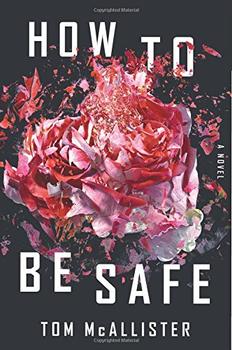Summary | Excerpt | Reviews | Beyond the Book | Read-Alikes | Genres & Themes | Author Bio

 Book Reviewed by:
Book Reviewed by:
Kate Braithwaite
Buy This Book
This article relates to How to Be Safe
In How To Be Safe, Tom McAllister charts a year in the life of his main character Anna and the rest of the community of Seldom Falls, in the aftermath of a mass school shooting carried out by a student. Anna, a teacher who was fired from the school, struggles to cope with many aspects of the tragedy, not least her feelings of guilt that she was not there when it happened.
The concept of survivor guilt was first identified among holocaust survivors, individuals who had lost family and friends in the concentration camps of Nazi Germany. It is recognized as afflicting people who survive traumatic events – wars and conflicts, natural disasters, terrorist attacks and school shootings, but can also be experienced by others such as first responders, transplant recipients, and people who have lost a loved one.
Regardless of the source of the feelings, Psychology Today identifies three themes or types of guilt that sufferers may experience:
The Sun Sentinel reported that students of Stoneman Douglas High School who were not, for one reason or other, at school on February 14, 2018, are experiencing survivor's guilt. The article estimates that on any given day, only 94% of the school's population is in attendance due to illness or other absences. Like Anna in How To Be Safe, there were people who were not at Stoneman Douglas, but could and normally would have been. These students have to balance the disconnect of being both part and not part of the event. They may also find they have less access to support than those who were present and yet may still be suffering significant trauma.
Filed under Medicine, Science and Tech
![]() This article relates to How to Be Safe.
It first ran in the May 2, 2018
issue of BookBrowse Recommends.
This article relates to How to Be Safe.
It first ran in the May 2, 2018
issue of BookBrowse Recommends.





The House on Biscayne Bay
by Chanel Cleeton
As death stalks a gothic mansion in Miami, the lives of two women intertwine as the past and present collide.

The Flower Sisters
by Michelle Collins Anderson
From the new Fannie Flagg of the Ozarks, a richly-woven story of family, forgiveness, and reinvention.

The Funeral Cryer by Wenyan Lu
Debut novelist Wenyan Lu brings us this witty yet profound story about one woman's midlife reawakening in contemporary rural China.
Your guide toexceptional books
BookBrowse seeks out and recommends the best in contemporary fiction and nonfiction—books that not only engage and entertain but also deepen our understanding of ourselves and the world around us.